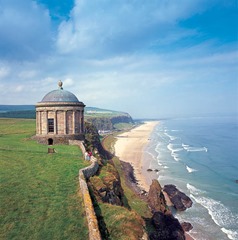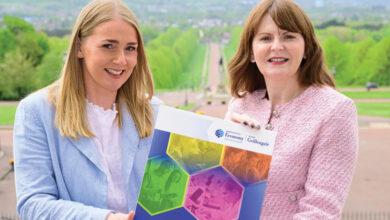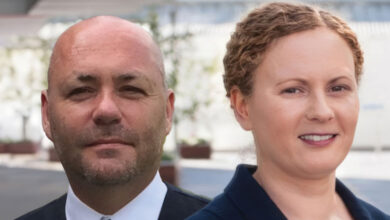Local government powers finalized
Ministers have finalised the powers to be transferred to the new councils. Elections are due next May with the full powers to be granted in April 2015.
With less than one year to go to the next local government elections, the Executive has agreed the package of powers to be transferred to the 11 new councils. Elections are expected to be held on 22 May 2014 (alongside the European Parliament election) and the new councils will then meet in ‘shadow’ format over next ten months. The current 26 councils will then be dissolved in April 2015.
Powers will be transferred in planning, roads, urban regeneration, community development, housing, local economic development and local tourism.
The delivery of the EU Rural Development Programme, the spot-listing of buildings and some aspects of sports policy will also be added to their remit.
“This is all about bringing power closer to citizens,” Environment Minister Alex Attwood told the Assembly.
“The more power in local hands, the more democratic our society [will become] and the more likely that local people will get the local services they need.”
He added: “Getting all of this right will help transform the way we plan and sustain our cities, towns and rural areas while boosting our economy and protecting our environment.” Attwood plans to fund the costs of transferring powers through an increase in the regional rate, which is set by Finance Minister Sammy Wilson.
The Executive will review the operation of the new powers in 2016. The Northern Ireland Local Government Association welcomed the announcement as “the start of something compelling for democratic service provision.”
Green Party spokesman John Barry said that it signalled “a long-overdue transformation of local government from being largely one of ‘administration’ to one of innovation and promoting civil and political leadership at the local level.” However, Barry was disappointed that the statutory bodies would only be obliged to “have regard to” community planning processes and said that “community empowerment, education and up-skilling” was needed that so that citizens are ready for the new powers.
• Area-based regeneration
• Authority to draw up lists of buildings of architectural or historic interest
• Authority to spot-list buildings on a temporary basis
• Development control and enforcement
• Environmental improvement schemes
• Housing unfitness (repair and demolition notices)
• Local development plan functions
• Off-street parking (except park-and-ride facilities)
• Registration of houses in multiple occupation
• Some community development programmes
• Delivery of EU Rural Development Programme
• Enterprise shows
• Investing for Women programme
• Local economic development
• Start a Business programme
• Support for social entrepreneurship
• Support for youth entrepreneurship (e.g. Prince’s Trust)
• Advice to developers on tourism policies and related issues
• Armagh County Museum
• Business support (including start-up advice, training and customer care)
• Donaghadee Harbour
• Greater involvement of local government in local sports policy decisions
• Small-scale tourism accommodation development
• Water recreational facilities
In March 2008, then Environment Minister Arlene Foster outlined her decision to transfer a wider package of powers than those announced this April. These included permits for access to pedestrian zones and events on roads (such as the North West 200, pictured), alley-gating, local arts and the work of the Northern Ireland Museums Council.
As an interim measure, councils were given the power to erect alley-gates on 1 April 2012. Legislation for transferring permits for events on roads may be considered in 2014. A specific Act would be required to transfer access to pedestrian zones; the Department for Regional Development said that this was “considered to be impractical at this stage.”
The Department of Culture, Arts and Leisure is reviewing how the functions of the Northern Ireland Museums Council should be delivered. The Arts Council is assessing the impact of local arts programmes and may transfer funding to councils when this research project is completed.









